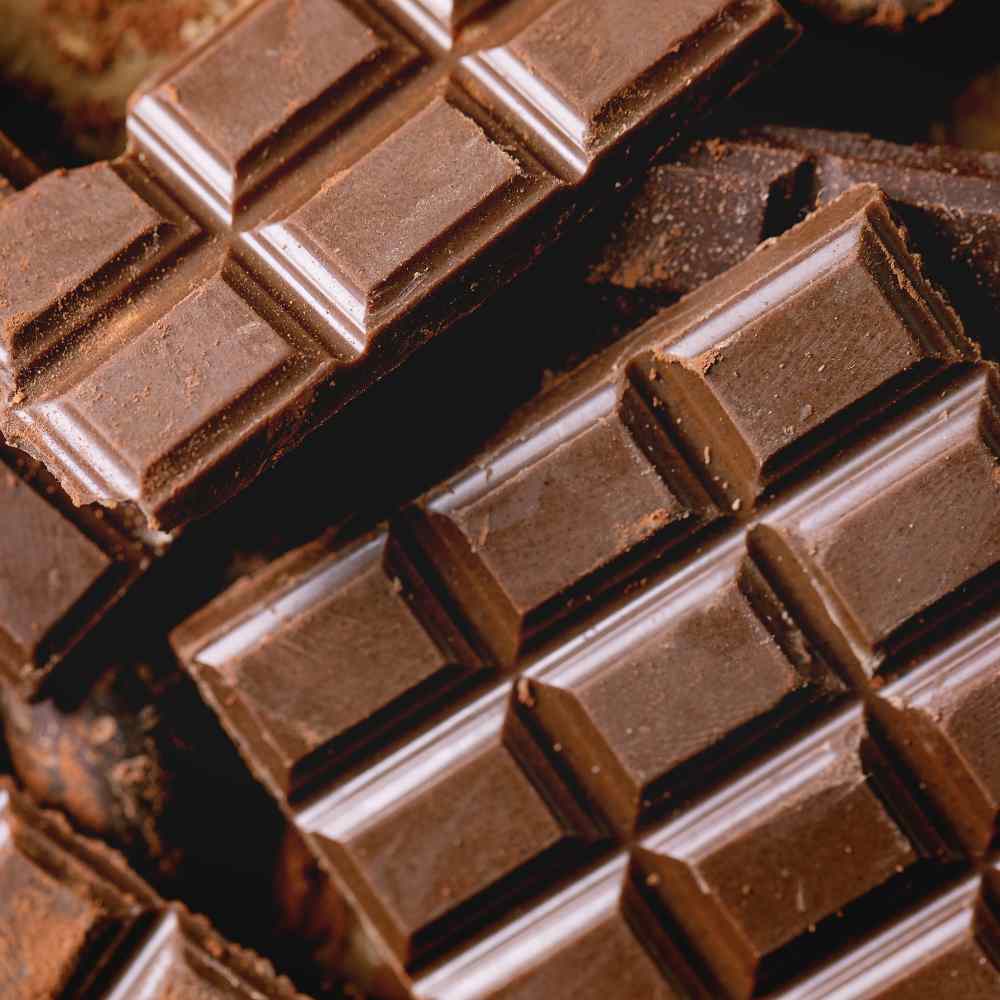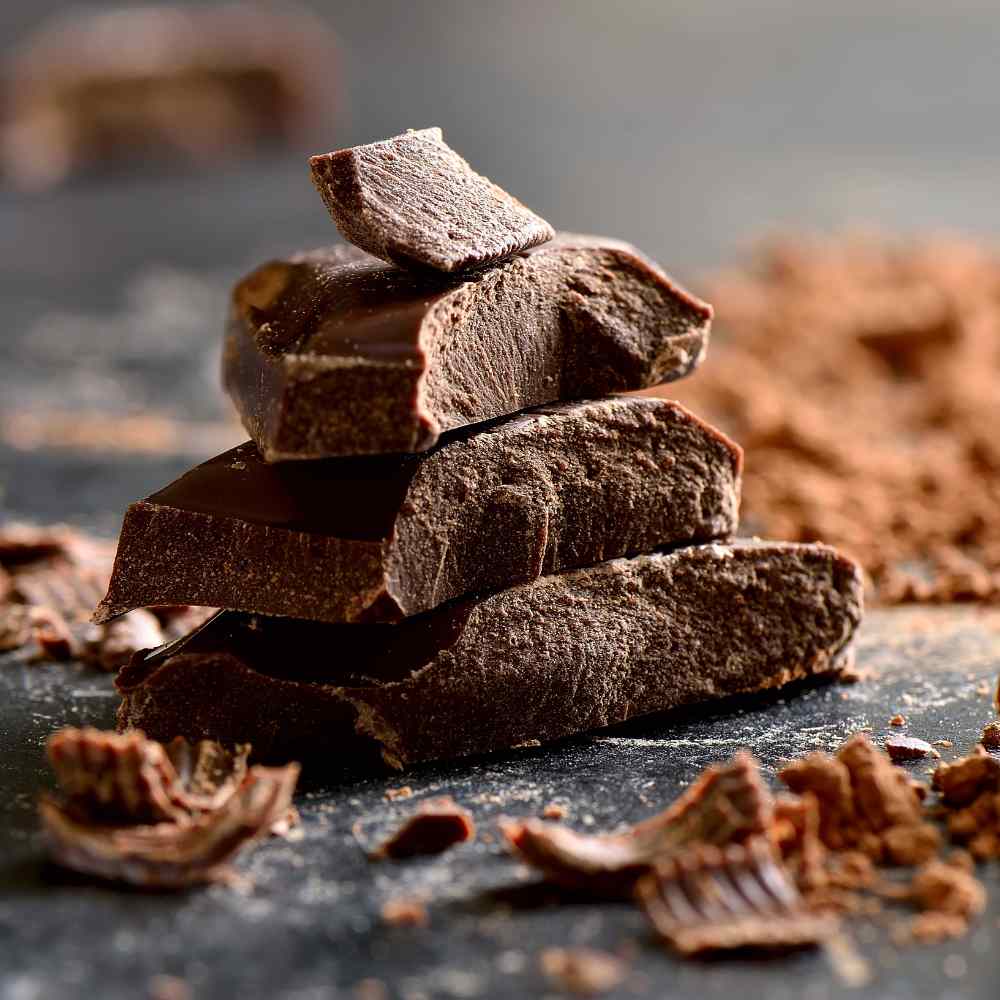
Does Chocolate Cause Acne? Sweet Changes for Clearer Skin
Are you a chocolate fiend who's simultaneously obsessing over their skin care routine? Do you love snacking on chocolate but fear it might be causing breakouts on your face or body? Let us help lay your worries to rest!
Does chocolate really cause acne, or is that consequence of sweet indulgence an old wives' tale? We've done the research and are here to present the facts.
Read along as we explore the science behind how different types of chocolate can influence our skin. You won't want to miss this comprehensive look into what everyone is asking: Does eating chocolate cause acne?
The Most Common Acne Causes
Before we unravel the chocolate-acne connection, let's briefly understand acne itself and what causes it.
The top culprits behind acne breakouts are a combination of hormonal changes, poor diet, and lifestyle choices. Let's take a closer look at each.
1. Hormonal Changes: Hormones play an important role in regulating our skin’s natural oil production; when there are fluctuations – particularly during puberty or during times of stress – this can lead to an overproduction of sebum (oil) that clogs pores and causes blackheads or whiteheads.
2. Poor Diet: It's no secret that what we put into our bodies can have an effect on the surface as well. Eating too many sugar-loaded foods like candy, cakes, cookies, and sodas can cause inflammation throughout the body which will show up in the form of acne on your face.
On the flipside, maintaining a healthy diet with plenty of fruits, vegetables and water helps keep your skin healthy.
3. Lifestyle Choices: Environmental factors such as smoking cigarettes, weed, vaping, or exposure to direct sunlight also have an effect on acne occurrence. If you live in a highly polluted area, this can also impact your skin.
4. Poor Skincare Routine: How much you wash your face matters! If you sleep with makeup on for example (we all do it once in a while!) then this will create more irritation leading to further breakouts down the line.
Also, if you're using old makeup or low quality makeup, this can contribute to skin issues. Make sure you are washing your makeup brushes regularly or else you're creating an opportunity for acne causing bacteria growth that will spread to your acne prone skin!

The Chocolate Acne Debate
The belief that chocolate causes acne stems from a few key observations. Chocolate, particularly milk chocolate and high-sugar varieties, contains ingredients such as milk, sugar, cocoa butter and cocoa powder that could potentially impact the skin.
Additionally, some individuals may notice an increase in breakouts after consuming chocolate, leading them to blame this indulgence for their acne woes.
Scientific Evidence: Chocolate and Acne
Despite the widespread belief, scientific studies have failed to establish a direct causal relationship between chocolate consumption and acne.
Multiple research studies have explored this topic, and the overall consensus suggests that chocolate, when consumed in moderation, does NOT significantly contribute to acne development.
However, it's worth noting that individual responses may vary, and some people may be more sensitive to certain ingredients present in a chocolate bar.
Doctor Mike, a YouTube influencer and medical doctor, doesn't like to blame one single food for causing an acne problem. Here's what he has to say about the chocolate debate:
Understanding Potential Culprits
While chocolate itself may not be the sole trigger for acne, some aspects associated with chocolate consumption may contribute to acne indirectly. Here are a few of them.
1. Sugar: High-sugar diets have been linked to increased insulin levels and inflammation, both of which can impact acne. Excessive sugar consumption, whether from chocolate or other sources, can potentially worsen existing acne or contribute to breakouts.
Opting for dark chocolate with higher cocoa content and lower sugar levels can be a better choice.
2. Milk: Some studies suggest that dairy products, including milk chocolate, may have a weak association with acne development. Milk contains hormones and growth factors that could potentially influence the skin.
If you suspect a correlation between dairy consumption and acne, it might be worth considering alternatives like dark chocolate or dairy-free options.
3. Additives and Processing: Commercial chocolates often contain additives, preservatives, and artificial flavors that may not be beneficial for overall skin health.
Opting for high-quality, minimally processed pure chocolate with natural ingredients can minimize potential negative effects.

Maintaining Balance and Overall Skincare
While enjoying chocolate in moderation is unlikely to cause significant acne breakouts, it's important to maintain a balanced diet and practice good skincare habits to support clear skin:
1. Balanced Diet: Focus on a well-rounded diet that includes plenty of fruits, vegetables, whole grains, and lean proteins. This can help provide essential nutrients and antioxidants that support overall skin health.
2. Skincare Routine: Implement a consistent skincare routine tailored to your skin type and concerns. Cleanse your face twice daily, exfoliate regularly to remove dead skin cells, moisturize to maintain hydration, and use non-comedogenic products to avoid clogging the pores.
Treat any acne lesions with a good spot treatment product. Also, always shower immediately after working out.
3. Lifestyle Factors: Manage stress levels, get sufficient sleep, and exercise regularly. These lifestyle factors can contribute to healthy skin and help prevent acne breakouts.
4. Watch Yourself: Pay attention to your own body's responses. If you notice a correlation between chocolate consumption and breakouts, it may be worth reducing your intake or exploring alternatives. Keep a journal to track any patterns and consult with a dermatologist if needed.
Busting the Chocolate Myth
The idea that chocolate bars causes acne is a popular myth that lacks substantial scientific evidence. While individual responses may vary, chocolate itself is not a major culprit for acne.
However, certain factors associated with chocolate consumption, such as high sugar content and potential dairy components, may have an impact on some individuals.
Maintaining a balanced diet, following a consistent skincare routine, and considering individual observations are essential for achieving clear and healthy skin.
So, feel free to savor a piece of chocolate without guilt. Remember, moderation is key, and enjoying chocolate as part of a balanced lifestyle can be a delightful treat without wreaking havoc on your skin.
Embrace the sweet moments and indulge responsibly, knowing that your skincare routine and overall lifestyle play a more significant role in achieving and maintaining clear, glowing skin.

















